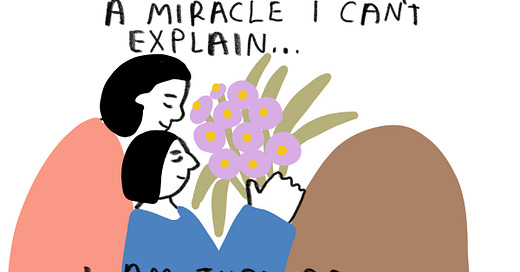April is the saddest month - how poetry offers support in hard times.
Using poetry as a tool to connect and reflect on life's complexities. With Jennifer Michael Hecht on her new book, The Wonder Paradox.
“April is the cruelest month, breeding
lilacs out of the dead land, mixing
memory and desire, stirring
dull roots with spring rain.”
―T.S. Eliot,The Waste Land
This is my second interview with Jennifer Michael Hecht, historian, and poet, author of Doubt, Stay, The Happiness Myth, and most recently, The Wonder Paradox. I am a person that somehow for some reas…
Keep reading with a 7-day free trial
Subscribe to BAD AT KEEPING SECRETS to keep reading this post and get 7 days of free access to the full post archives.



